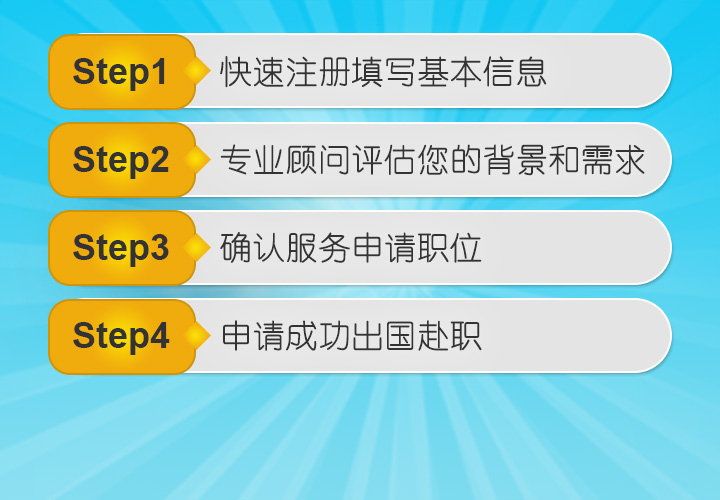雅思口语测试第二部分对话(IELTS SPEAKING SECTION 2)
知识人网今天带来雅思考试口语测试第二部分个人陈述的对话介绍,感兴趣的申请者快来看看吧。

IELTS SPEAKING SECTION 2
雅思口语测试第二部分对话
So, you are planning to pursue a position abroad as a post-doc or a visiting scholar. You are motivated and looking forward to new opportunities. Now, all you need to do is prove your English Proficiency. One way to do so, is by taking the IELTS Test.
所以,您正计划去国外做博士后或访问学者。您踌躇满志,希望有新的机会。现在您要做的就是证明您的英语水平,方式之一就是参加雅思考试。
IELTS stands for "International English Language Testing System", and it is an international standardized test of English language proficiency for non-native English language speaker. The speaking module is a key component of IELTS. It consist of a face-to-face interview between the test taker and an examiner, and it is divided into 3 sections. This time, we are going to be talking about Section 2. (Section 1 was already explained on a previous post which is available in our WeChat account “知识人网”. If you haven't check it yet, click here.)
雅思是“国际英语语言测试系统”的简称,是母语为非英语的人们英语能力的国际标准化测试。口语模块是雅思考试的关键部分。这部分由考官和考生面对面测试,分三个部分进行。今天,我们介绍第二部分。
(第一部分可以在知识人网微信订阅号往期发文中查阅,如果您还没看过,可以点击《雅思口语测试第一部分对话(IELTS SPEAKING SECTION 1)》阅读第一部分介绍。)
Section 2: Personal Long Turn
第二部分:个人陈述
Lasts 3–4 minutes.

用时3–4分钟。
You will be given a task card about a particular topic.
您会拿到一张特定话题的任务卡。
You have 1 minute to prepare to talk about this topic, and you can make some notes.
此环节您有一分钟的准备时间,可以做些笔记。
The task card states the points that should be included and 1 aspect of the topic which must be explained.
任务卡上会提示应包括的答题要点,并就话题的一个方面进行阐述。
You are expected to talk about the topic for 2 minutes, after which the examiner may ask one or two questions.
发言时间为2分钟,发言结束后,考官可能会问一两个问题。
Example of Section 2
第二部分示例
A: Kevin Powell – IELTS Examiner
凯文. 鲍威尔 ——雅思考官
B: Anna Liu – Test Taker
刘安娜——考生
A: Now, I’m going to give you a topic. I want you to talk about it for 1 to 2 minutes. Before you talk, you’ll have 1 minute to think about what you are going to say. You can make notes if you wish. Do you understand?
A:现在,我给您一个话题。我希望您用1到2分钟来谈论这个话题。发言前,您有1分钟的时间思考您要讲些什么,可以做笔记。您明白了吗?
B:Yes.
B:明白。
A: Here is some paper and a pencil for making notes. And here is your topic. (Hands over a card with the topic.) I like you to describe a special gift or present you gave to someone.
A:这里有纸和一支铅笔。这是您的题目(考官递过来写有题目的卡片)。我希望您就过去送给某一个人的一个特别的礼物发言。
Section 2 Topic Card
第二部分提示卡
A: (1 minute later). Alright. Remember you have 1 to 2 minutes to talk about it. So don’t worry if I stop you. I’ll tell you when the time is up. Can you start speaking now please?
A:(1分钟后)。好,切记您有1到2分钟的发言时间。如果我示意您停下时,不要担心。到时间后我会告诉您的。您现在可以发言了吗?
B: When my father turned 50, I decided to throw a big birthday party for him. We have a very big family, and I invited all of our family members. I also invited all his closest friends and coworkers. However, several family members live abroad so of course they were no able to attend. Therefore, as a present for my father I made a video with a compilation of the wishes of the family members who were not present the day of the party. Each family member made a short video in the most iconic place of the city they live. Wishing him a happy 50th Birthday. The video looked like a compilation of birthday wishes from across the world. It was fun and emotive. I felt so happy when I gave him my present. He did not expected it, and he was very moved by it.
B:我父亲50岁时,我决定为他办一个生日盛宴。我们是一个大家族,当时我邀请了所有的家庭成员,还邀请了他最亲密的老友和同事。不过,有几个家人在国外,无法赴宴,所以我就制作了一段视频,汇集了无法赴宴的家庭成员们的生日祝福,作为礼物送给我父亲。他们在各自生活的城市最具有标志性的地方取景,拍了短视频祝我父亲五十岁生日快乐。这段视频看起来就像是来自世界各地的生日祝福,非常有趣也很感人。送给父亲这个生日礼物我非常开心。他从没想过会有这样的祝福,所以非常感动。
A: Do you enjoy giving gifts?
A:您喜欢送礼物吗?
B: Yes. I often give little gifts to my family and friends. I not only give them presents on their birthdays, but also when I believe they have reach a milestone in their lives. Such as getting a promotion, being accepted to grad school, buying a house, and so on.
B:是的。我经常给家人和朋友送一些小礼物。不仅在他们生日那天送礼物,而且,在我认为他们又进入人生中的一个新的里程碑时,也会送礼物给他们。比如说升职、被研究生院录取、买房等等。
A: Thank you. Can I have the booklet and the pencil back please? (Takes away the materials)….. We’ve been talking about a special gift you gave to someone, and I’d like to discuss with you one or two general questions related to this. On what occasions do family members give gifts to each other in your country?
A:谢谢。可以把纸和铅笔还给我吗?(考官拿走纸笔)……我们已经谈论了您给别人送礼物的这个话题,关于这个话题我还想问您两个问题。在您的国家,通常家人会在哪些场合互赠礼物?
B: In China, we usually give gifts to family member on their birthday. Mother’s Day is another occasion when we give gifts. At last, during Chinese New Year we often return to our hometown to meet our entire family and celebrate the Lunar Year. When visiting relatives we always take little gifts with us such as: fruit, tea or cookies. Also, during Chinese New Year, tradition dictates that older people give “Red Envelopes” filled with cash to children or young adults who are still single.
B:在中国,通常家人过生日时会送礼物。母亲节我们也会送礼物。最后是中国传统的春节,这个时候我们都会回家和家人团聚,一起庆祝农历新年。去亲戚家拜年的时候,我们会带礼物过去,比如:水果、茶叶、或者饼干。并且,春节期间,传统的习俗是,长辈们给孩子或者单身的小辈们发装现金的“红包”。
A: Do people tend to spend a lot of money on gifts?
A:人们愿意花很多钱来买礼物吗?
B: Well, it really depends on each individual. It is not expected for you to give a fancy present to a family member on special occasions. It also depend on the occasion itself and how close you are to the person. Perhaps if it is a very special occasion and you can afford to buy something special, then yes, sometimes particularly expensive gifts can be given.
B:嗯,这要根据个人情况来看了。给家人买礼物的时候,一般并不期待您买多么贵重的礼物。这也要取决于场合和您与收礼人的关系亲密程度。如果这是一个非常特殊的场合,而您也能够负担得起特别的礼物,那么是的,有时也可以赠送特别贵的礼物。
––– End of Section 2 –––
––– 第二部分结束–––
IELTS Speaking marking criteria
雅思口语评分标准
IELTS Speaking scores are calculated using 4 criteria:
雅思口语评分标准为以下4个方面:
The Fluency and coherence (FC) = how clear and structured is your speech.
流利和连贯=表达的清晰度和结构连贯度。
Lexical Resource (LR) = how good is your vocabulary.
词汇资源=词汇的掌握程度。
Pronunciation (P) = how natural you sound.
发音=发音的自然程度。
Grammatical Range and Accuracy (GRA) = how good is your grammar.
语法掌握和准确性=语法掌握程度。





















